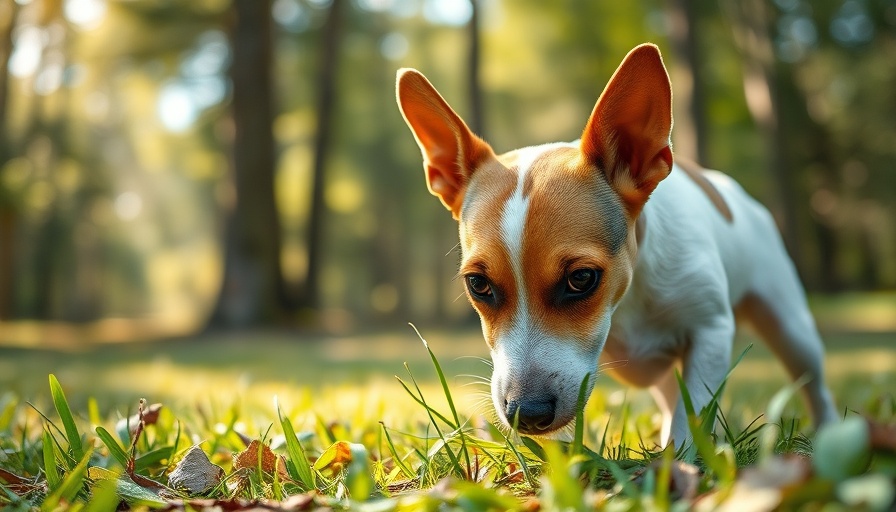
Understanding the Dangers of Seeds for Dogs
Dogs are not just pets; they are cherished family members that often engage in exploring their surroundings with their mouths. While this instinctive behavior is adorable, it can also lead to dangerous situations if they ingest harmful seeds from various sources, such as gardens, parks, or even commercial dog food. This article aims to elevate awareness about which seeds can pose risks to canine health and how you can protect your furry friend.
Common Dangerous Seeds to Watch For
Many seeds that we may deem harmless can be hazardous to dogs. For example, apple seeds and cherry pits contain amygdalin, which can break down into cyanide in a dog’s system, posing a serious health risk. Additionally, seeds from fruits like peaches and apricots also fall into this toxic category. Conversely, seeds such as sunflower and pumpkin seeds can be safe, provided they are unsalted and given in moderation, offering nutritional benefits such as fiber and healthy fats.
The Risks of Ingestion: Symptoms to Watch Out For
Understanding the effects of seed ingestion is crucial for pet owners. Symptoms can range from mild gastrointestinal upset like vomiting and diarrhea to significant health crises, such as respiratory distress, especially in brachycephalic breeds (those with short snouts). It is important to monitor your pet closely for these signs and seek immediate veterinary assistance if any concerning symptoms appear.
Essential Steps for Pet Safety
Taking preventive measures is key to safeguarding your puppy against harmful seeds. Here are a few essential practices for pet owners:
- Identifying Hazardous Plants: Familiarize yourself with plants in your garden or neighborhood that produce toxic seeds. For instance, it’s wise to remove seeds from common fruits, especially if your dog enjoys scavenging.
- Careful Selection of Dog Food: Always read ingredients on commercial dog food labels. Some brands may contain seeds that can lead to distress when consumed frequently, posing a risk to your pet’s health.
- Dog-Safe Gardening: Implement gardening practices that encourage safety. This includes growing dog-friendly plants and keeping potentially harmful ones out of reach.
Immediate Actions If Your Dog Eats Toxic Seeds
In the unfortunate event that your dog consumes seeds that could be harmful, act quickly. Contact your veterinarian immediately with details about the seeds ingested and the symptoms observed. In some cases, they may suggest inducing vomiting as a first aid measure to expel the seeds before they create further damage.
Enhancing Your Dog's Health Through Nutrition
While it’s vital to be cautious about the seeds and nuts introduced to your pet, certain varieties can actually serve as beneficial nutritional enhancements. Nutrient-rich seeds, such as flaxseeds and chia seeds, can provide your dog with essential fatty acids and fiber that promote a healthy coat and digestive system. Incorporating these into your dog’s diet can improve overall well-being.
The Call for Awareness
As pet owners, staying informed about the health risks associated with various foods, including seeds, is crucial. Discuss safe dietary options with your veterinarian and consider their advice when selecting treats and recipes for your dog. The health of your pet rests on your proactive and educated choices.
Final Thoughts on Pet Safety
In conclusion, the dangers posed by various seeds can be significant when it comes to our beloved dogs. By understanding which ones to avoid and implementing strategies to keep your home and garden safe, you can help prevent accidental ingestion. Remember, both knowledge and vigilance are your best tools in ensuring your furry friend remains healthy and happy.
For more practical tips on how to safeguard your pets from various dangers in your home and garden, continue exploring educational resources or connect with a veterinary professional who can share personalized advice based on your dog’s health.
 Add Row
Add Row  Add
Add 




 Add Row
Add Row  Add
Add 

Write A Comment